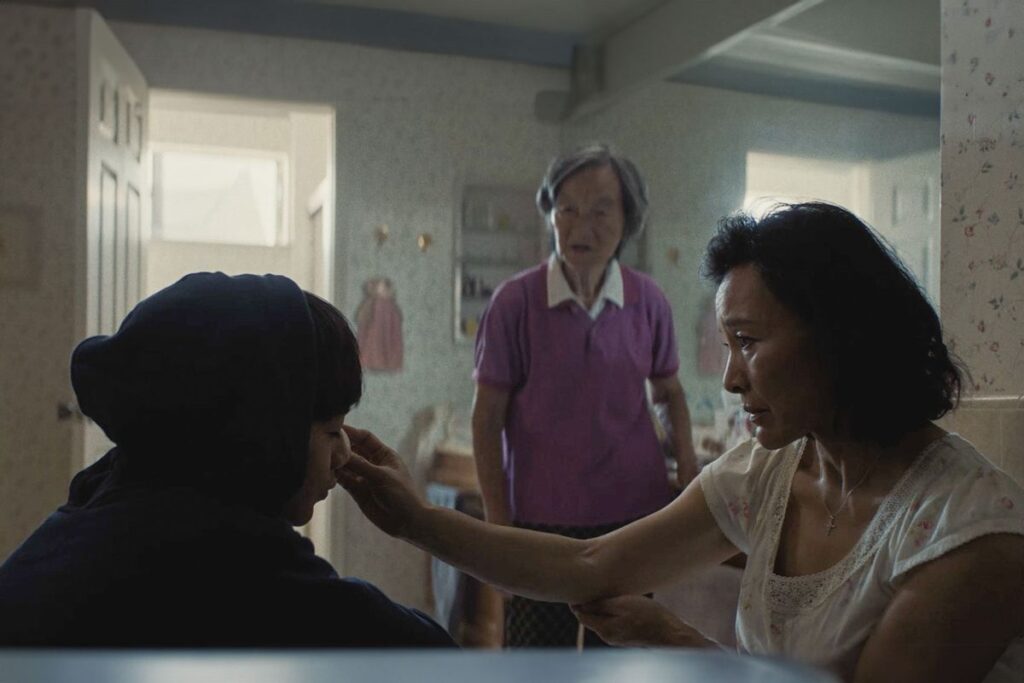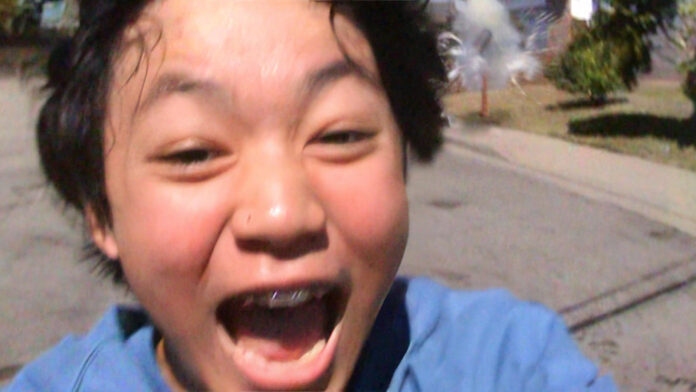In her long career, Joan Chen has collaborated with a litany of great directors, among them Wayne Wang (Dim Sum: A Little Bit of Heart), Bernardo Bertolucci (The Last Emperor), David Lynch (Twin Peaks), Oliver Stone (Heaven & Earth), Ang Lee (Lust, Caution), Bruce Beresford (Mao’s Last Dancer), and Philip Kaufman (Hemingway & Gellhorn).
She’s also a filmmaker in her own right, who received a Film Independent Spirt Award for best first feature for Xiu-Xiu: The Sent-Down Girl. Most recently, she bet on a first-time filmmaker, Sean Wang, whose debut Dìdi (弟弟) premiered at Sundance in January and won the US Dramatic audience award and a special jury prize for its ensemble. It opens Friday at Bay Area theaters.
“I felt like I could trust him,” the San Francisco-based Chen says of throwing her lot in with Wang. “I was in good hands. The story is very personal to him. He’s talented for sure but also with a sensitive, sensitive heart.”
Set in 2008 in Fremont, Wang’s hometown, the coming-of-age drama stars Izaac Wang as 13-year-old Chris Wang, “Didi” to his Taiwanese immigrant mother Chungsing (Chen). It’s the summer before he starts high school and his operative emotion is embarrassment. He’s embarrassed by his mom, and embarrassed by his own talent for saying or doing the wrong thing as he fights with his friends, wrestles with the pangs of first love, and falls in with some older skaters, whom he starts videotaping.
Dìdi (弟弟)’s tone is comedic and poignant, sometimes in the same moment. (And the movie appropriately comes with some skater-hip swag.) One of Wang’s favorite films is François Truffaut’s New Wave classic—and first feature—The 400 Blows. Its DNA is evident in his own film.
“400 Blows has stuff with (its 14-year-old protagonist’s) parents and it’s turbulent, not an easy pill to swallow,” Wang says. “It doesn’t look at childhood through a rose-colored lens. It really shows how turbulent and fraught and lonely and sad childhood can be.
“When I look back at my childhood, it was all those things, but it was also very irreverent and fun. My friends and I grew up in the age of Jackass, and cameras were becoming more accessible. So, in this, I was trying to balance that irreverence and that joy and that sort of carefree summer adolescence without ignoring the pain and loneliness and sadness and confusion that come with those formative years.”
One thing that Wang has in common with Didi is those skate videos. Wang would not start making movies until his late teens. He says he didn’t have the language for filmmaking until then. He was also ignorant of the film industry. He wasn’t aware of the legacy of directors—and the Bay Area had yet to give birth to a thriving indie scene from which talents like Boots Riley, Ryan Coogler, Barry Jenkins, Savannah Leaf, Joe Talbot, and H.P. Mendoza emerged. But at 13, Wang had his skateboard and a camcorder.

“Throughout middle school and high school, I was making stuff I just didn’t have the words for it,” he says. “I was just like, ‘This is fun.’ I don’t what this is but I like it. I was making a lot of skate videos, and then short documentaries and music videos. It was just fun.”
In making a film that is partially a love letter to his hometown and so personal that he cast his own octogenarian grandmother to play Didi’s grandma, Wang says he was seeking to create a summer camp-like feeling on set. Much of the cast is young and inexperienced. In casting a veteran like Chen, he was hoping she would help the tone on set.
“Because of how much experience she has, a lot of us were looking at her to kind of be like, ‘OK, Joan’s on set,’ but there was no ego,” Wang says. “It really felt like we were making stuff with our friends.”
“It was refreshing, it was nice,” says Chen of what was for her an unusual situation. “I found that when (the nonprofessionals) are relaxed and just able to be themselves, they are better than the so-called professionals. They’re just more authentic, more real. There’s no performance. I just tried to be like them.”
Appearing in Dìdi (弟弟) also afforded Chen a new experience. She has lived in San Francisco for decades but she had never visited Fremont.
“I’m so glad that we made that film there and now I’ve discovered a great place,” Chen says. “It’s filled with great Asian foods and boba tea places and bakeries and markets.”
“It’s a lot of different pockets within one city.,” Wang adds. “There’s all these different pockets of Fremont and there’s all these different stories to mine there. I think our story is just one. Joan loves our look book. You know, I wrote in the look book that on the surface Fremont is quiet and humble and there doesn’t seem to be a lot underneath the hood.
“But once you get into the heart of the stories and the people who live there, you can find a story that is maybe a little bit more intimate than some of the other stories have come out from the Bay Area but is no less emotional.”
DÌDI (弟弟) opens in Bay Area Theaters this Friday. More info here.






